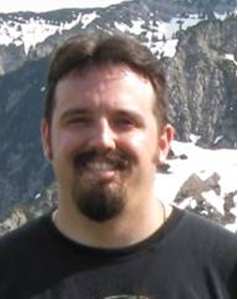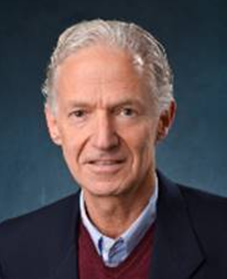Friday, September 5th, 2014 @ 11:00 AM Presentation Starts at 11:30 AM
Topic: Two Methods for Remote Viewing
Presenters: Erik Maddocks and Garret Moddel, PhD
Psi can be used to access information that is not available to the usual five senses, including information from the future. In a class on psi at the University of Colorado, ten inexperienced remote viewers attempted to predict the outcome of the Dow Jones Industrial Average (DJIA) using a protocol known as associative remote viewing (ARV). ARV was developed by Schwartz and used in 1984 by Targ and Puthoff with trained viewers to predict future events. Using this ARV protocol, the participants successfully predicted the outcome of the DJIA in seven out of the seven trials (binomial probability test, p < .01). Investments in stocks were made based on the outcomes of the amateur remote viewers’ sessions resulting in a significant financial gain over a short period of time. From this experiment it appears that ARV can be used by untrained and inexperienced subjects with success, at least for limited runs.
Unfortunately, a decline in psi accuracy is usually observed over time. In a new type of remote viewing protocol we call machine-mediated remove viewing (MMRV), we attempted to avoid decline effects associated with human subjects. We developed and ran MMRV experiments in which a random number generator in the proximity of a human subject was used to draw the images. Perhaps surprisingly, it worked! A statistically significant number of the machine-produced images were judged to be correct. In addition to that result, some unexpected results with a control group of experiments has led to a new set of questions.
 Erik Maddocks is an RF Engineer with FIRST RF Corporation where he designs antennas and antenna systems for the U.S. Department of Defense. Erik was a graduate student at the University of Colorado at Boulder studying electromagnetics, where he investigated the characterization of the atmosphere for millimeter wave SATCOM links. Erik received his bachelors of Science degree in Physics from Southern Oregon University in 2008 and MS in Electrical Engineering from the University of Colorado at Boulder in 2014.
Erik Maddocks is an RF Engineer with FIRST RF Corporation where he designs antennas and antenna systems for the U.S. Department of Defense. Erik was a graduate student at the University of Colorado at Boulder studying electromagnetics, where he investigated the characterization of the atmosphere for millimeter wave SATCOM links. Erik received his bachelors of Science degree in Physics from Southern Oregon University in 2008 and MS in Electrical Engineering from the University of Colorado at Boulder in 2014.
 Dr. Garret Moddel has been a Professor of Electrical, Computer, and Energy Engineering at the University of Colorado since 1985. Along with quantum engineering of new thin-film optoelectronic devices and exotic energy technologies (http://ecee.colorado.edu/~moddel/QEL/index.html), his research group investigates psi phenomena (http://psiphen.colorado.edu/). He has invented a range of new energy technologies, with 30 patents, and founded several high-tech start-up companies. He recently served as president of our Society for Scientific Exploration. Dr. Moddel earned a BSEE degree from Stanford and MS and PhD degrees in Applied Physics from Harvard.
Dr. Garret Moddel has been a Professor of Electrical, Computer, and Energy Engineering at the University of Colorado since 1985. Along with quantum engineering of new thin-film optoelectronic devices and exotic energy technologies (http://ecee.colorado.edu/~moddel/QEL/index.html), his research group investigates psi phenomena (http://psiphen.colorado.edu/). He has invented a range of new energy technologies, with 30 patents, and founded several high-tech start-up companies. He recently served as president of our Society for Scientific Exploration. Dr. Moddel earned a BSEE degree from Stanford and MS and PhD degrees in Applied Physics from Harvard.
Erik Maddocks and Garret Moddel
University of Colorado, Boulder, CO 80309-0425
erik.maddocks@colorado.edu
moddel@colorado.edu
========================
Location:
Millennium Harvest House
Boulder
1345 Twenty-Eighth Street
Boulder, CO
USA 80302-6899
(303) 443-3850
At the Millennium we will be in “The Millennium Room” to the left of the main desk. The hotel is providing a gluten-free hot buffet including both meat and vegetarian choices for $20.00.
Please let Paul Sperry know if you can come and if you will be bringing guests. It is really helpful if you can arrive early to partake in the buffet so we can start promptly at 11:30.
paul.sperry@comcast.net
303-817-2163 Cell
